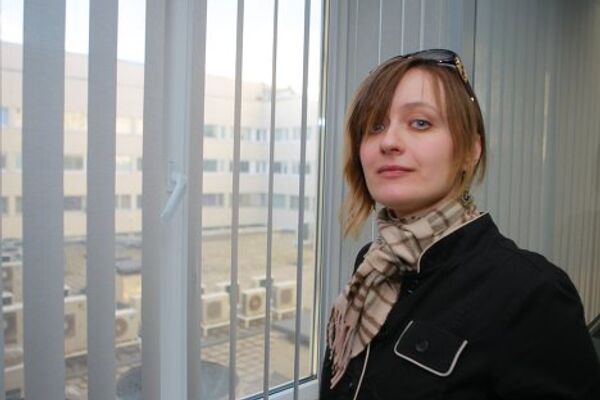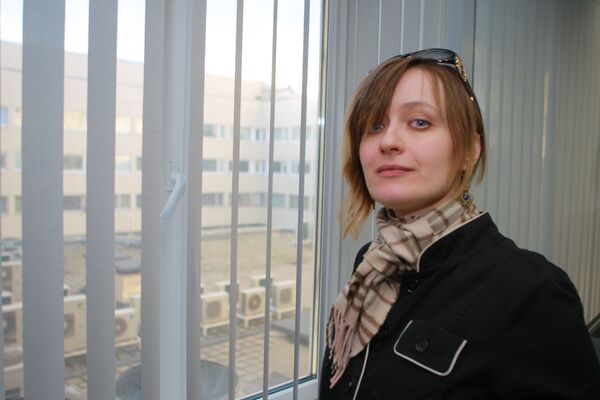Last week, a couple of foreign journalists I know traveled to a small town very far from Moscow in order to explore local culture – and possibly write about it. Before they went, they posted an innocent question on a local forum, asking residents about any specific places and/or people they ought to visit.
The question generated many responses. Most of them can best be summed up this way:
“Are you foreign agents? Are you spies? Foreign pigs! What the hell do you want to visit us for? Stay away!”
Needless to say, the journalists in question won’t be doing any culture stories about that particular town – although they did get a taste of local culture one way or another.
It’s the culture of television propaganda, poverty and bitterness. A culture of a people who are so used to being deemed irrelevant that they freak out at any notion of outside interest. A culture that is not so much conformist as catatonic.

It is not my belief that the residents who posted insults and aired out their suspicions on that particular town – and no, I won’t give the town’s name, so that the other people living there won’t be tarred with the same brush – represent the whole of Russia. Russia is enormous and very diverse. Some places are simply more hospitable than others, and frankly, there are small towns in North Carolina, where I mostly grew up, that are full of similar folk.
What’s interesting to me about this incident is the sudden revival of the phrase “foreign agent.” Primarily used in the Soviet era, the phrase has been revived in the popular imagination after the government passed a ham-fisted new law targeting NGO work in Russia. Any foreign grant can now get an NGO labeled a “foreign agent” – even if that NGO is helping out endangered storks. All it takes is some mention in your charter about “working with officials to help out the cute, cuddly storks” (I’m joking here, but only halfway) – and voila. You’re a foreign agent! You’re a threat to your homeland!
The first lesson of the online forum debacle is that propaganda works. Especially for residents of small towns – even if those residents have access to the Internet. And when I say “propaganda,” I don’t just mean whatever it is that is said on state television, but also the direct influence of local officials, who are only ever used to dealing with a top-down system of management and to telling people what to think. Political debate in small, insular communities isn’t just unpleasant, it’s virtually nonexistent.
Yet the second lesson of the online forum debacle is that propaganda works – for a while. One of the perils of a totalitarian mindset, or, indeed, an authoritarian community, is that it is inflexible, that is to say fragile. And there is no knowing where a witch hunt might eventually end up. In recent months, I have frequently begun hearing mainstream Russian politicians labeled “foreign agents.” I’m not talking about the opposition, I’m talking about card-carrying members of the ruling United Russia party here.
A particularly paranoid gentleman once spammed me with diatribes about how Russian President Vladimir Putin is the biggest “foreign agent” of them all – allegedly financed by the Illuminati and “Western billionaires.” Sounds wacky and humorous and ultimately harmless, right? Well, for those of you who are laughing right now, how about we take a trip down memory lane and recall the events that inspired “The Crucible”?
This play by Arthur Miller was based on the real-life Salem witch trials, which illustrated the dangers of mass hysteria in an isolationist community. The trials didn’t just lead to the destruction of the accused – they severely impacted local society.
The thing about any form of extremism – be it ideological or religious – is that it cannot be controlled. If you keep teaching people to be paranoid, don’t be surprised when their paranoia eventually focuses on you.
If anything, the residents of Small Town X are lucky that they have foreigners to direct their suspicions at.
Trendwatching in Russia is an extreme sport: if you’re not dodging champagne corks at weddings, you’re busy avoiding getting trampled by spike heels on public transportation. Thankfully, due to an amazing combination of masochism and bravado, I will do it for you while you read all about it from the safety of your living room.
Natalia Antonova is the acting editor-in-chief of The Moscow News. She also works as a playwright – her work has been featured at the Lyubimovka Festival in Moscow and Gogolfest in Kiev, Ukraine. She was born in Ukraine, but spent most of her life in the United States. She graduated from Duke University, where she majored in English and Slavic Literature. Before coming to Moscow, she worked in Dubai, UAE and Amman, Jordan. Her writing has been featured in The Guardian, Foreign Policy, Russia Profile, AlterNet, et al.
Trendwatcher: Yarovaya and WWII: With Friends Like These…
Trendwatcher: The Spies Strike Back
Trendwatcher: Three Cheers for Divorce
Trendwatcher: Domestic Violence Finally on Russia’s Agenda
Trendwatcher: No Country for ICU Patients
Trendwatcher: Sasha Grey: Why Don’t We Do It in the (Russian) Road?
Trendwatcher: Going Postal, Pochta Rossii-Style
Trendwatcher: The An-2 plane: lost and found in the Urals
Trendwatcher: The Belgorod Massacre: ‘I Was Shooting at Hell’
Trendwatcher: Boston and Moscow: a tale of two police forces

